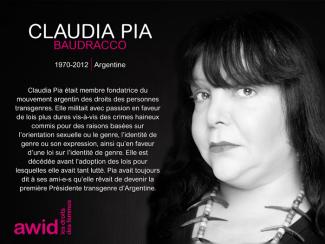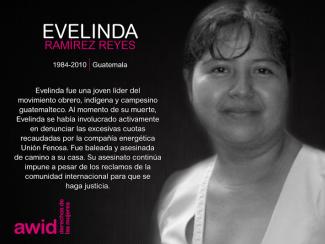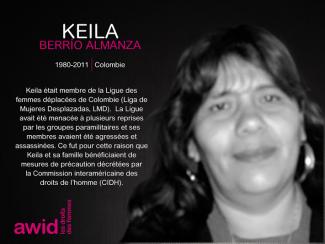Après avoir évalué la capacité et les objectifs de recherche de votre organisation, vous pourriez choisir entre autres méthodes de collecte de données, de mener une enquête pour vos recherches.
Dans cette section :
Pourquoi réaliser un sondage ?
Un sondage constitue un excellent moyen de rassembler des informations sur chacune des organisations afin de capter les tendances collectives.
Par exemple, la taille du budget d’une organisation ne vous renseigne pas beaucoup sur une tendance de financements destinés aux droits des femmes. En revanche, si vous connaissez les budgets de 100 ou 1 000 organisations, vous pouvez commencer à tracer le portrait de la situation collective du financement à l’appui des droits des femmes.
Alors que vous élaborez votre sondage, gardez à l’esprit le cadre de référence de votre recherche établi dans la section précédente.
N’oubliez pas : Votre cadre vous aide à déterminer quels renseignements vous tentez d’obtenir avec votre sondage. Les données recueillies devraient vous permettre de réaliser vos objectifs, de répondre à vos questions principales et de créer vos produits finaux.
Haut de page
Déterminez la population que vous visez
C'est une étape importante : plus vous identifiez clairement la population que vous souhaitez sonder, plus vous pourrez affiner vos questions.
Selon vos objectifs de recherche, vous pourriez créer des sondages distincts auprès des organisations de droits des femmes, des baillerus de fonds et des donateurs. Vous pourriez également concentrer votre sondage sur les groupes de femmes et mener des interviews auprès des bailleurs de fonds et des donateurs, puisque la réalisation d’un sondage auprès de chaque population peut exiger des ressources considérables.
Il se peut que les questions posées aux groupes de femmes diffèrent de celles que vous posez aux bailleurs de fonds. Si vous prévoyez de sonder plus d’une population, nous vous invitons à adapter votre collecte de données en fonction de chacune d’entre elles.
Dans le même temps, certaines des questions principales posées à chaque population pourraient se chevaucher pour permettre une analyse comparative des réponses obtenues.
Sondage en ligne
Si vous pouvez atteindre votre population cible en ligne, il est utile et efficace d’élaborer un sondage en ligne.
Nous recommandons deux outils en ligne, qui proposent des versions gratuites :
Survey Gizmo vous permet de convertir vos données en format accessible SPSS, un logiciel statistique utile dans le cadre d’une analyse avancée des données.
La-les personne-s chargée-s de l’analyse des données sera-seront la-les mieux placé-e-s pour déterminer quels sont les outils les plus appropriés à votre recherche en fonction des compétences du personnel et des plans d’analyse.
Pour faciliter l’accessibilité, considérez la possibilité de produire un formulaire en version PDF, que vous pourrez joindre à un courriel. Cela permettra aux organisations qui ont des connexions Internet sporadiques, ou à celles qui doivent payer son utilisation à la minute, de télécharger l’sondage et de la remplir hors ligne.
Sondage sur papier
Vous pourriez décider que l’approche en ligne n’est pas assez accessible ou inclusive pour la population visée.
Dans ce cas, vous devrez élaborer un sondage sur papier et des méthodes pour atteindre les populations qui ne sont pas « branchées » (par le truchement d’activités communautaires ou par la poste avec des enveloppes-réponses préaffranchies).
Haut de page
Élaborez vos questions
Facilitez la tâche de ceux et celles qui répondront à votre sondage.
1. Questions courtes et claires
Si les questions sèment la confusion ou exigent des réponses complexes, vous risquez de constater que les gens ne terminent pas le sondage ou encore qu’ils fournissent des réponses inutilisables pour votre analyse.
Veillez à ce que les questions ne demandent qu’un élément d’information à la fois.
Par exemple :
- Quel est le budget de votre organisation cette année ?
Réponse facile : la personne peut aisément trouver l’information pour son organisation et la question ne demande qu’un élément d’information.
- Quel pourcentage de votre budget proviendra de sources probables de financement pour votre organisation, mais qui ne sont pas encore confirmées ?
Question qui prête à confusion et réponse difficile : vous demandez une liste de sources de financement non confirmées ou un pourcentage du financement qui est probable mais non confirmé ?
Ces renseignements sont difficiles à obtenir : la personne devra calculer les pourcentages qu’elle n’a peut-être pas sous la main, augmentant ainsi le risque qu’elle ne termine pas le sondage.
2. Langage simple et universel
Plusieurs mots ou acronymes qui vous sont familiers pourraient être totalement inconnus des personnes qui répondront à votre sondage, par exemple, « mobilisation des ressources », « ODD » ou « S&E ». Assurez-vous de choisir un langage plus universel pour formuler vos questions.
S’il vous faut employer le jargon, des phrases ou des mots que vos collègues connaissent bien, mais qui ne sont pas largement adoptés, fournissez une définition qui rendra votre sondage plus facile à comprendre.
Assurez-vous d’écrire en toutes lettres les acronymes que vous utilisez. Par exemple, si vous parlez de S&E, écrivez ou dites « Suivi et évaluation ».
3. Questions « ouvertes » et questions « fermées »
Questions fermées :
Une seule réponse est possible (comme « oui » ou « non » ou encore un nombre). Les personnes qui remplissent le sondage ne peuvent répondre en utilisant leurs propres termes et devront généralement choisir parmi des catégories prédéterminées que vous aurez créées, ou encore saisir un nombre précis. Les réponses aux questions fermées sont plus faciles à mesurer collectivement et elles sont fréquemment quantitatives.
Exemple d’une question fermée : Quel est le budget de votre organisation ?
Questions ouvertes :
Il s’agit de questions qualitatives, souvent descriptives. Les personnes répondent à ces questions en utilisant leurs propres termes. Ce sont des questions qui se prêtent mieux aux interviews qu’aux sondages.
Ces questions sont plus difficiles à analyser sur le plan collectif que ne le sont les questions fermées, particulièrement si votre échantillon est vaste. Cependant, si les questions ouvertes sont très précises, les réponses seront plus faciles à analyser.
Concevez Autant que possible vos questions de sondage de telle sorte que les personnes qui y répondront pourront faire leur choix à partir d’une liste d’options, plutôt que de poser des questions ouvertes. Vous gagnerez du temps sur le plan du nettoyage et de l’analyse des données.
Exemple d’une question ouverte : Cette année, à quels défis particuliers avez-vous fait face en matière de levée de fonds ?
Familiarisez-vous avec les différents genres de questions
Il existe plusieurs manières de poser des questions ouvertes. En voici quelques exemples, que vous pouvez étudier pour déterminer le genre de questions qui correspond le mieux aux types de données que vous souhaitez recueillir :
- Les questions à choix multiples : la personne peut choisir une ou plusieurs options que vous présentez.
- Échelles de notation : la personne accorde une note sur une échelle que vous aurez prédéterminée.
Pour ce qui est de ce genre de questions, assurez-vous d’expliquer clairement ce que signifient les chiffres les plus élevés et les moins élevés de l’échelle.
- Classement : la personne choisira et organisera un certain nombre de réponses que vous aurez prédéterminées.
En savoir plus sur les différents types de questions
4. Organisation logique
Si vous prévoyez de mener cette recherche à intervalles réguliers (par exemple, tous les deux ans), nous vous recommandons d’élaborer un sondage de base que vous pourrez répéter afin de suivre les tendances au fil du temps.
Ensemble 1 : Questions de présélection
Cette présélection permet d’identifier les personnes pouvant répondre au sondage.
Les sondages en ligne que nous avons proposés vous permettent de mettre fin au sondage si la personne qui y répond ne satisfait pas à vos critères d’admissibilité. Au lieu de remplir le sondage, ces personnes seront dirigées vers une page où on les remercie de leur intérêt, tout en leur expliquant que ce sondage est destiné à un type différent de répondant-e-s.
Par exemple, il se peut que vous ne souhaitiez sonder que les groupes de droits des femmes d’un lieu particulier. Les questions de présélection peuvent déterminer le lieu où se trouve la personne et éviter que les gens qui sont autre part ne poursuivent le sondage.
Ensemble 2 : Questions standardisées de base sur la démographie
Ces questions recueillent des données propres à la personne qui répond, comme le nom et le lieu de l’organisation. Ces données peuvent chevaucher les réponses aux questions de présélection.
Si les ressources le permettent, vous pouvez stocker ces réponses dans une base de données et ne poser ces questions que la première année où une organisation participe à votre sondage.
Ainsi, lorsque vous répèterez le sondage ultérieurement, les organisations pourront remplir plus facilement et rapidement le formulaire, augmentant ainsi les chances qu’il soit complètement rempli.
Ensemble 3 : Questions standardisées et obligatoires sur le financement
Ces questions vous permettront de réaliser le suivi sur la durabilité des revenus et du financement. Si votre sondage est menée annuellement ou tous les deux ans, vous pourrez ainsi capter les tendances au fil du temps.
Ensemble 4 : Questions sur des enjeux particuliers
Ces questions tiennent compte du contexte actuel. Elles peuvent se référer aux changements survenus sur la scène politique ou économique. Elles peuvent être facultatives et liées au financement, portant notamment sur les attitudes à l’égard de la levée de fonds.
Par exemple, l'enquête mondiale WITM de l’AWID en 2011 posait des questions sur les nouvelles tendances en matière de financements que le secteur privé accordait aux « femmes et aux filles ».
5. Moins de 20 minutes
Les sondages les plus courts sont les meilleurs : votre sondage ne devrait pas dépasser 20 minutes afin de respecter l’emploi du temps des répondants-tes et de leur permettre d’y répondre complètement.
Il peut être tentant de poser une multitude de questions en espérant recueillir un grand nombre d’informations. Cependant, les sondages trop longs sont fatigants et risquent de lasser les personnes répondantes ou encore de les éloigner de votre organisation.
De plus, plus vous aurez de questions plus votre sondage sera laborieux à analyser.
6. Simple et intéressante
- Avant de commencer, informez les participants du temps qu’il leur faudra pour remplir le questionnaire.
- Précisez le genre d’informations dont ces personnes auront besoin pour le remplir afin qu’elles leur soient facilement accessibles (par exemple, si vous demandez des données financières, dites-le dès le départ pour que les personnes soient préparées).
- Demandez des renseignements que les organisations peuvent facilement se procurer et vous fournir : par exemple, les organisations pourraient avoir du mal, ou être dans l’impossibilité de vous fournir des renseignements financiers d’il y a 20 ans.
- Proposez des mesures incitatives pour convaincre la population ciblée de remplir le questionnaire, comme le tirage d’un prix.
Par exemple, dans le cadre de le sondage mondiale WITM de 2011, l’AWID a organisé un tirage dont le prix était un billet d’avion aller-retour pour participer au Forum de l’AWID.
Conseils généraux
- Demandez des détails budgétaires précis plutôt que d’offrir une échelle (selon notre expérience, les montants spécifiques sont plus utiles lors de l’analyse).
- Précisez la devise ! Si nécessaire, dans les réponses sur les aspects financiers, demandez à tout le monde de convertir leurs réponses dans la même devise ou demandez aux personnes qui répondent au sondage de préciser la devise qu’elles utilisent.
- Assurez-vous de recueillir assez de renseignements démographiques sur chaque organisation, afin de contextualiser les résultats et de nuancer les tendances dégagées.
Par exemple : Si vous analysez où est l’argent dans un pays particulier, il sera utile de savoir d’où provient chacune des organisations et/ ou à quel niveau (rural, urbain, local, national) elles évoluent. Cela permet de capter les tendances les plus importantes, comme la plus grande disponibilité des fonds pour les groupes urbains.
Haut de page
Testez et traduisez
1. Vos conseiller-ère-s
Le fait de mobiliser vos partenaires dès le départ vous permettra d’établir des relations plus approfondies et assurera une recherche plus inclusive et de meilleure qualité.
Ces personnes vous fourniront des commentaires sur la version préliminaire de votre sondage, piloteront les mises à l’essai et examineront l’analyse préliminaire des résultats de le sondage et d’autres collectes de données.
Ces conseiller-ère-s annonceront également le sondage à leurs publics lorsqu’elle sera prête à être lancée. Si vous prévoyez un sondage en plusieurs langues, assurez-vous de compter sur des partenaires qui parlent ces langues.
Si vous choisissez de collecter vos données à l’aide d’un sondage et d’interviews, les partenaires qui vous auront guidé dans la conception de votre sondage peuvent aussi être interviewé-e-s.
2. Version préliminaire et test
Lorsque la version préliminaire de votre sondage est terminée, testez-la auprès de vos partenaires avant de la présenter à votre population cible. Vous serez ainsi en mesure de détecter et d’ajuster les problèmes techniques ou les questions prêtant à confusion.
De plus, vous pourrez mesurer concrètement le temps nécessaire pour remplir le formulaire.
3. Traduction
Lorsque le sondage est achevé et qu’il a été testé dans votre langue maternelle, il peut être traduit.
Assurez-vous de tester les versions traduites de votre sondage. Dans un souci de clarté, certaines des personnes qui testeront le sondage devront la traduire dans leur langue maternelle.
Haut de page
Ciblez la population pertinente
1. Taille de l’échantillon
La taille de l’échantillon représente le nombre de personnes ayant rempli votre sondage.
Votre échantillon devrait refléter les caractéristiques de la population plus vaste que vous souhaitez analyser.
Par exemple : Imaginons que vous souhaitez analyser les millions de groupes de droits des femmes à Valyria, mais vous n’avez ni le temps ni les ressources pour sonder chaque groupe.
Vous pouvez à la place ne sonder que 500 groupes. Ces groupes seront l’échantillon représentatif de tous les groupes de femmes de la région.
Tailles d’échantillons recommandées
- 100 personnes participantes ou moins : tend à ne pas être fiable.
- 250 à 400 : générera des résultats relativement exacts.
- Plus de 400 : entièrement adéquat et permettra également une analyse précise des sous-groupes (par exemples, les groupes d’âge).
Bien qu’il ne soit pas nécessaire de déterminer la taille exacte de votre échantillon avant de lancer votre sondage, le fait de l’avoir estimé vous permettra de déterminer le moment où vous aurez atteint un nombre suffisant de répondant-e-s ou si vous devez prévoir un prolongement des dates de le sondage possible, si vous estimez que vous n’avez pas contacté assez de personnes.
2. Niveau de participation
Un élément qui est encore plus important que la taille de l’échantillon est le nombre de personnes de la population ciblée qui seront en mesure de participer à un sondage.
Si de larges portions ou d’importantes tranches de la population sont systématiquement exclues (soit en raison de la langue, de l’accessibilité, du moment, de problèmes de base de données, d’accès à l’Internet ou d’autres facteurs), il est impossible de mesurer précisément la fiabilité statistique des données de sondage.
Dans notre exemple : vous devez vous assurer que tous les groupes de femmes de Valyria ont eu l’occasion de participer à le sondage.
Si un segment des groupes de femmes de Valyria n’utilise par l’Internet, et que vous recrutez des participant-e-s uniquement à partir de méthodes en ligne, vous ignorez alors dans votre échantillon final une tranche considérable de la population ciblée. Par conséquent, votre échantillon n’est pas représentatif de tous les groupes de femmes de Valyria.
Vous ne pouvez tirer de conclusions exactes de vos données si des tranches de population sont exclues de votre échantillon. L’utilisation d’un échantillon représentatif, vous permettra d’éviter cette erreur.
3. Bases de données et liste de contacts
Pour connaître la composition des groupes de femmes dans votre région de recherche (région, population, etc.), il pourrait être utile d’examiner les bases de données.
- Certains pays pourraient avoir des bases de données sur tous les organismes sans but lucratif inscrits, ce qui vous permettra de connaître l’ensemble de votre population.
- Si les bases de données ne sont pas disponibles, vous pouvez générer votre propre liste de groupes de votre région d’intérêt. Commencez par les réseaux et les coalitions et demandez-leur de vous aiguiller vers d’autres groupes qui ne font pas partie de leurs membres.
C’est en connaissant la composition générale des groupes de femmes que vous avez l’intention de cibler que vous aurez une meilleure idée de l’allure que prendra votre échantillon : il devrait représenter une mini-version de la population d’ensemble.
Une fois que les personnes auront répondu au sondage, vous pourrez mesurer si la population que vous avez touchée (votre taille d’échantillon) correspond à la composition de l’ensemble de la population ciblée. Si ce n’est pas le cas, vous pourriez choisir de déployer des activités de sensibilisation auprès des tranches de population qui selon vous ont été exclues ou prolonger la période d’ouverture de votre sondage.
L’incertitude face à la représentativité de votre échantillon ne doit pas vous paralyser : faites tous les efforts pour étendre votre recherche le plus loin et le plus largement possible.
Haut de page
Étape précédente
2. Cadrez votre recherche
Étape suivante
4. Recueillez et analysez vos données











